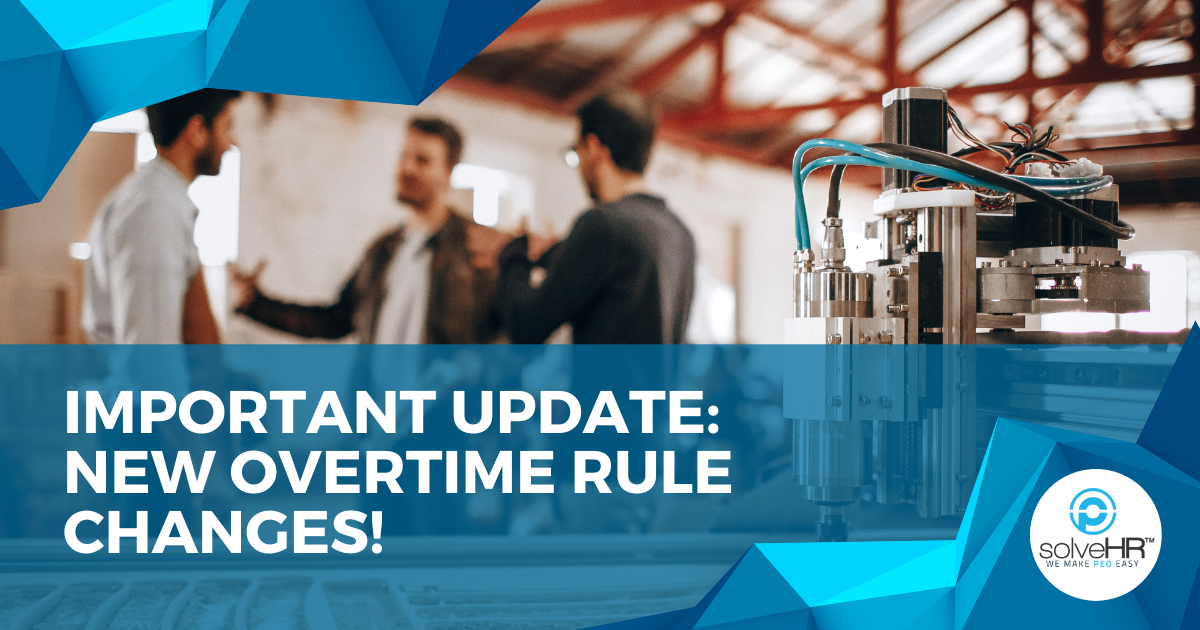Important Update: New Overtime Rule Changes!

At SolveHR, we believe in keeping our community informed about important changes that impact the workplace. The Department of Labor (DOL) has recently announced a significant update to the Fair Labor Standards Act (FLSA) that will affect many salaried workers. Here’s what you need to know.The Basics: What Is the New Overtime Rule?The DOL's new overtime regulation aims to ensure that a hard day’s work is rewarded with fair compensation. Effective July 1, 2024, the rule will expand overtime pay protections to millions of lower-paid salaried workers in the U.S.Key Changes and Dates
- Increased Salary Threshold for Overtime Eligibility:
- Starting July 1, 2024: Most salaried workers earning less than $844 per week will be eligible for overtime pay.
- Starting January 1, 2025: This threshold will increase to $1,128 per week.
- Changes for Highly Compensated Employees:
- Starting July 1, 2024: The total annual compensation requirement for highly compensated employees will increase from $107,432 to $132,964.
- Starting January 1, 2025: This requirement will further rise to $151,164.
- Regular Updates to Thresholds:
- Starting July 1, 2027: The earnings thresholds will be updated every three years to keep pace with changes in worker salaries. This will help ensure that the thresholds remain relevant and reflective of current economic conditions.
Who Is Affected?The updated overtime rule affects salaried workers who are classified under the "EAP" (executive, administrative, or professional) exemption. To qualify for this exemption:
- The employee must be paid a salary.
- The salary must meet or exceed the specified threshold.
- The employee must primarily perform executive, administrative, or professional duties.
Why Is This Change Important?The DOL's new rule is designed to protect workers from being overworked and underpaid. By updating the salary thresholds, the rule helps to ensure that more workers receive fair compensation for overtime work. This change is expected to benefit millions of workers, helping to build a stronger middle class and support healthier work-life balances.Feedback and DevelopmentThe final rule was developed after extensive feedback from the public, including workers and employers across the country. The DOL reviewed over 33,000 written comments and held nearly 30 listening sessions to gather insights and opinions.What Should Employers and Workers Do?We urge all employers and employees to stay informed about these changes and understand how they might be affected. For detailed information, you can visit the Department of Labor’s website or contact SolveHR for further guidance.
Experience Hassle-Free Payroll Today
Request a demo to see our services in action!

